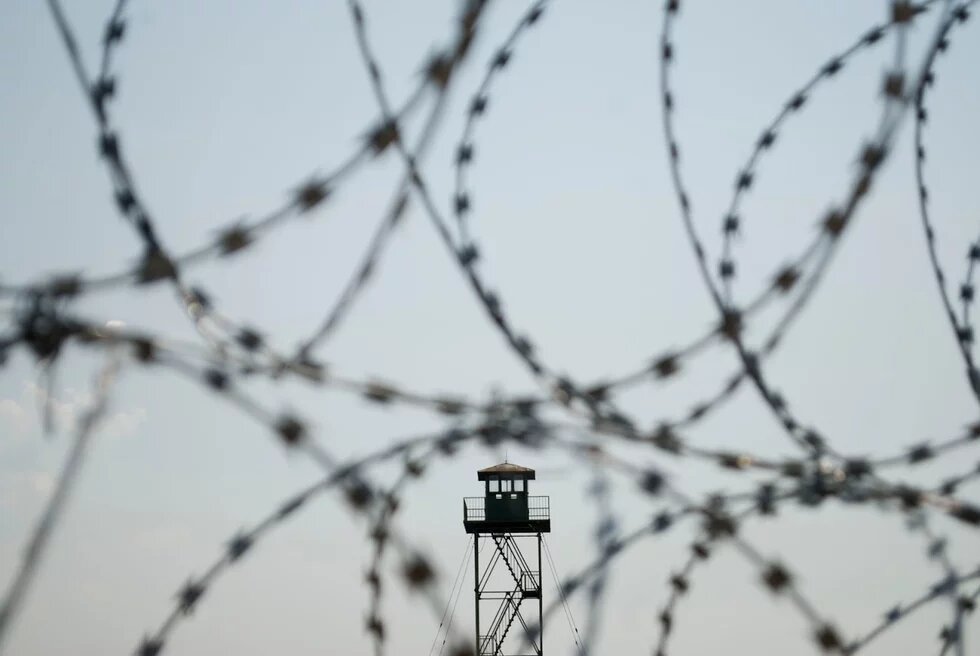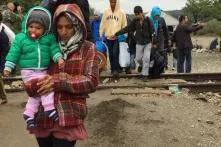
Xenophobia and efforts to turn public opinion against “social welfare migrants” are not a new invention. But the fact that every solution that comes from the EU is ignored – this is something new.
Migration is the most natural human behaviour. We move away from natural catastrophes, we move to where there are more jobs or better conditions. It is part of our basic survival instinct: if we see a better opportunity for living, then we move. Solidarity and cooperation are characteristics that make us human. Unfortunately, so are fear of the unknown and the capacity to look for simple answers to complicated questions. It may not be simple to have a state run by politicians, but it is unacceptable to mask the complexity of questions such as migration with the simplest of answers in order to conceal an agenda, and to turn an open, liberal democracy into a hybrid illiberal, populist autocracy.
Xenophobia and efforts to turn public opinion against “social welfare migrants” are not a new invention, but the fact that this is occurring in the heart of Europe (accompanied by the construction of sharp wire fences, the blocking of border crossings, the implementation of undemocratic laws targeting the basic concept of the right to asylum, and the use of the police and military to push refugees into other countries), the fact that every solution that comes from the EU is ignored – this is something new, and unfortunately also somehow fashionable among right-wing and populist parties. Prime Minister Orbán is not the only one, although he may be the most visible, while among governments his regime has gone the furthest in the region.
The anti-refugee discourse began months before the huge wave of actual refugees arrived in Hungary. The Hungarian PM addressed the issue already in August 2014, declaring Hungary a state constituted by “righteous people” who are not interested in becoming multicultural, and who are still struggling with integrating their own minorities, e.g. the Roma. Orbán said: “When I have travelled in Western countries, I have seen migrants working in low-paid jobs, not being members of the Academy of Sciences, and for low-paid jobs we have our own minority – the Roma population. So if we can’t offer work for them, how do we believe they will be able to integrate?”
How refugee children became invisible
To the general public in Hungary, the terms asylum, migration, integration, and multiculturalism mean very little. Historically, Hungary has been a liberal but rather closed society with a great inclination towards paternalism, and also a place from where many progressive thinkers have had to emigrate in order to become successful. We have had no massive immigration – to the contrary, there has been a massive exodus of young educated people to wealthier and more tolerant countries. In the last two decades, the average number of annual asylum applications has been under 5,000, but when the numbers started to rise NGOs working in the field warned that the system could not handle the projected volume of asylum seekers.
Instead of augmenting capacities to cope with the refugees, however, the government saw an opportunity to control the debate and to steer public opinion towards a clear anti-migrant position. First, the public received a questionnaire titled “National Consultation on Immigration and Terrorism” and filled with stereotype-laden questions such as “Would you support the Hungarian government being more strict with people who cross the border illegally?” Only about 10% of people actually completed the questionnaire, despite the fact that the government posted hundreds of giant posters across the country targeting refugees in Hungarian with slogans such as “if you come to Hungary, you can’t take jobs away from Hungarians!” But the prime minister and his political advisors had recognised the power of propaganda and fear. As the real refugee numbers grew, the goal became to make refugees’ lives as difficult as possible.
As the wave of refugees began arriving in Hungary in March 2015, the government had already inserted its terminology into the public discourse, using expressions such as economic immigrants and illegal immigrants rather than asylum seekers and refugees. In August and September 2015 Thousands of refugees were forced to stay at Budapest’s Keleti railway station, prevented from boarding trains. State media showed a rather one-sided picture of refugees (as it turned out, for instance, it was forbidden in state television channels to show refugee children at all). Meanwhile, Fidesz politicians warned of murders and riots in Budapest and at detention centres. Unfortunately, it is very easy to label a minority group, and in so doing to turn people against that minority. The refugees did not have the means to defend themselves.
"Not so homey"
The dominant argumentation patterns of this hostile approach to refugees were to defend Christian-Hungarian culture and the country’s Jewish citizens from a “Muslim invasion”. The country has been divided into helpful and unfriendly citizens. As the government had an interest in escalating the situation, refugees were directed to Keleti station on their way to holding facilities, and were delayed there by the rhapsodic closing and opening of international train connections and the border at Röszke. They camped at the station without any basic care provided by the government or state authorities. The situation was exacerbated by the fact that riot police were guarding the borders and blocking access to families and foreign journalists, as well as by Budapest Mayor István Tarlós’s announcement that planned transit zones would consist of open tents so that refugees “do not feel so homey in them”.
Refugees were not granted the right to access translators in legal proceedings and lacked basic information. Only NGOs and volunteers provided sufficient help, and traditional aid organisations like the Red Cross Malta and the Hungarian Red Cross helped to some extent as well. The leader of the Catholic Church in Hungary, however, gave a very discouraging answer to the question “Where is the Church in this time of need?”, arguing that as the migrants had entered the country illegally, Church members could be labelled as smugglers by the state if they were to give them shelter. This created turmoil among the faithful, somehow suggesting that they should only be loyal to the government and not to the path of Jesus Christ. Some clergymen had helped in disguise, it was later conceded, but when the Pope called for greater solidarity one bishop claimed not to know enough about the situation, citing the need to keep terrorists out.
This discourse and political tactic is simple but extremely dangerous, and it creates fertile ground for more radical parties, namely Jobbik, to gain the public trust. Jobbik’s rhetoric is often even harsher, and their inhumane ideas may seem more legitimate to a growing number of citizens: such a discourse can surely conceal other scandals such as corruption, nepotism, growing Russian influence and many unpopular issues, but it also creates an atmosphere where more radical voices can be tolerated and even accepted by the majority. As a result, extremely dangerous situations where people are attacked more frequently because of their appearance, religion or language may increase. We already have cases of vandalism, open threats to NGO workers and incitement of violence on social media, among recent cases. Hate is a strong unifying force, but it unifies the worst of us. Not knowing any refugees personally but encountering them in public parks and seeing the chaos that they represent portrayed on national television and other government media can make people believe and do awful things.
“You’re different, don’t come"
The events taking place at the Schengen borders in Croatia, Serbia and Hungary show that a coherent European strategy is still missing, and that keeping the people in a state of limbo between Hungary and Germany is extremely irresponsible and dangerous. To announce and then renounce that Germany is accepting all Syrians has made life even harder for the thousands who are trying to get through Hungary. People want to leave the country and they will not accept anything else. It is easy to combat smugglers with words, but people pay them to get into countries where they might be stopped at the borders. They serve a need – a need fuelled by the Dublin Regulation and stronger border controls, by fences and travel restrictions.
It is extremely urgent that Europe decide how to help these people, what will come after Dublin III, how to respond to the situation, and that fighting smugglers is a distraction. The smugglers are not the problem; they are merely an ugly symptom of a much bigger problem. It is essential to provide assistance to countries facing this challenge inside and outside the EU, to work on simplifying the asylum process, to create integration centres for accepted refugees and a fair system of allocating them. It is essential to assess their skills, to create opportunities for them to restart their lives, and to label any other voice or agenda as un-European and state abuse of power as a crime against humanity. No fence can protect us from becoming accomplices to murder.
In Hungary, meanwhile, the narrative of the public discussion is worsening thanks to the filters of the Fidesz media empire, even blaming the victims and deeming foreign powers responsible for their deaths and suffering. Civic demonstrations are trying to raise awareness and calling for solidarity. Hundreds have offered their time and thousands their resources to assist the arriving tens of thousands. We are thanking everybody who despite warnings from neo-Nazis, despite the arrogant, unfriendly, uncooperative authorities (with a few exceptions), have kept up the work. Oftentimes refugees lack even the most basic information, have received no translations, or have been misinformed. Regulations have been enforced at random, and non-Syrian refugees have experienced discrimination and frustration. During the registration process, the personnel have not always been ready for the mission, and families have had to queue in the pouring rain without shelter.
The attitude in Hungary is not changing: “You’re different, don’t come, if you come then behave or we’ll imprison you, we don’t want you here but we won’t let you go, and we can’t send you back either.” We are all stuck in this together. The plan is working; in private conversations the most common topic is the “migration crisis”. People are not happy, but many blame the refugees and some the government. Some say it is a situation, but only the government turned it into a crisis. Now every day the numbers climb higher and higher. We hope there is a resolution before the winter arrives. If this happens, we will all be happy, except the PM and his team of political advisors, as they will have to find a new enemy to fight. They were able to sell Viktor Orbán as the defender of Europe’s borders, and recently he has found friends everywhere.
The refugees experienced various losses, deaths, torture and pain. The only thing they kept was hope for a safer life. To arrive in Europe and to face barbed wire and hostile authorities cannot take this hope away. Very few have given up. The fence stopped them for two days; then they found a different route, and broke the record of 10,000 people arriving in a single day. The fear that they might be dangerous, part of Al Qaeda or Islamic State sleeper cells, is very unrealistic. Who would do any harm to a community that welcomed them? Successful integration is the best way to combat radicalisation and terrorism. Unreasonable fear of foreigners is the short definition of xenophobia, but such fear can become more widespread if we let it.
Proofreading by Evan Mellander

